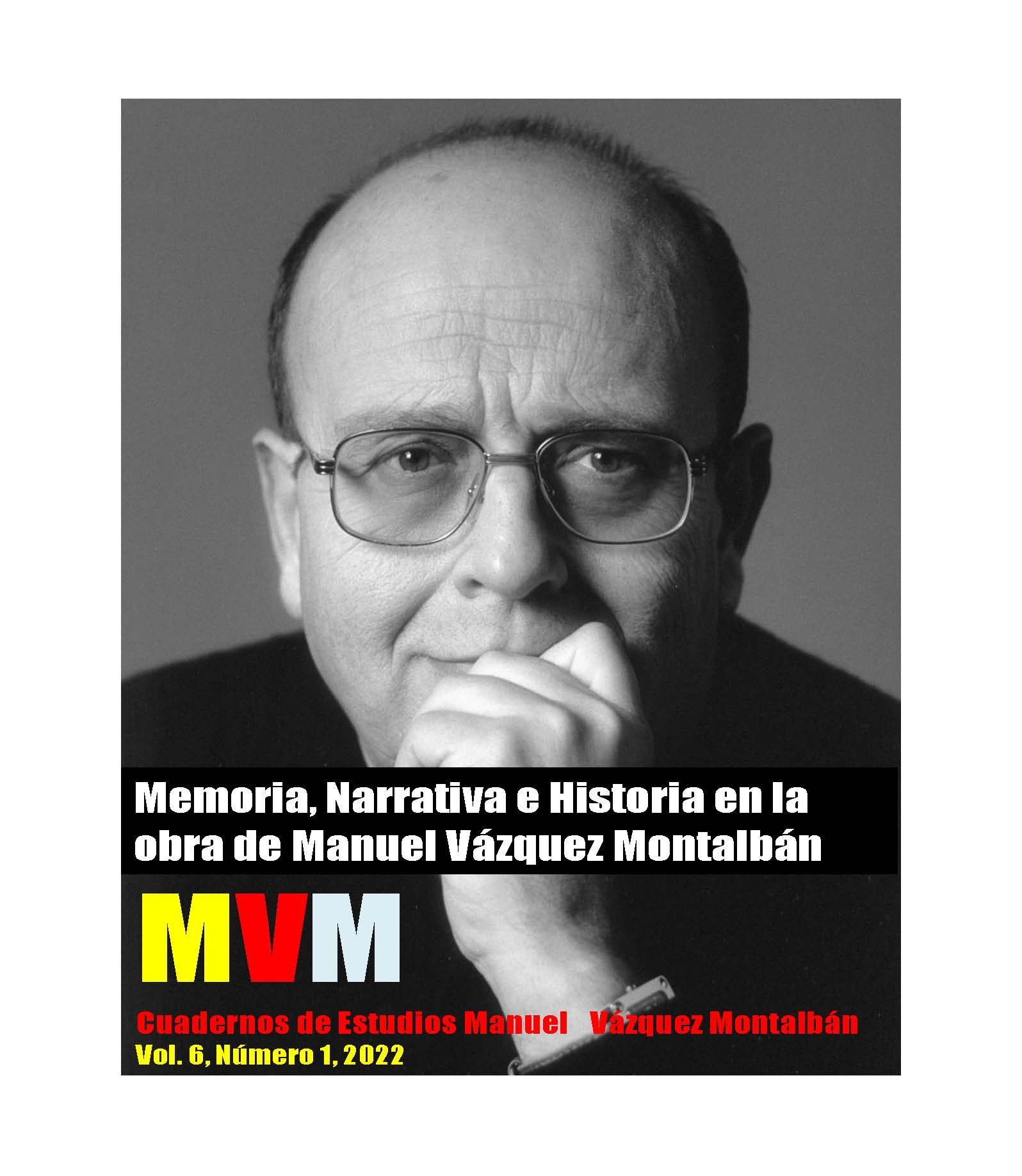La identidad reelaborada en Galíndez de Manuel Vázquez Montalbán
DOI:
https://doi.org/10.5617/mvmcemvm.9433Keywords:
identity-in-discursive, identity-in-practice, history, memory, power, resistanceAbstract
Identity is constantly constructed through discourse. In this sense, we can speak of a “identity-in-discursive” and of an “identity-in-practice” to refer to the linguistic process that forms our personality (Kanno and Stuart 238). Muriel Colbert's investigation into the disappearance of Jesús de Galíndez is a reworking of this character's personality, in which objective facts, subjective impressions and fiction are combined both in-discursive and in-practice. In this study, it is analyzed how this novel presents that the construction of identity is a cultural fiction resulting from the use of language (Sevilla-Vallejo 2017b 291). Muriel Colbert intends to reveal what the last moments of the one she considers her hero were like, but the testimonies she receives, both in interviews and in documents, are constantly transforming the image she had up to that moment. And what is more interesting is how facts and fiction about Galíndez also affect the identity of the researcher and the other people who come into contact with him. Galíndez's complexity and contradiction reflect the same political complexity in which he lived and the clash between the desires and the reality of each of the characters. Galíndez invites us to a critical reflection beyond the data offered (Bodenmüller 75) and to the search for true identity in a context where lies and concealment predominate.
References
Balibrea, Mari Paz. En la tierra baldía. Manuel Vázquez Montalbán y la izquierda española en la modernidad. Barcelona: El Viejo Topo, 1999. Impreso.
Bamberg, Michael. “Why Narrative”. Narrative inquiry, 22(1), (2012): 202-210. Impreso.
Benson, Ken. Experimentalismo frente a narratividad. Actas XI de la Asociación Internacional de Hispanistas (1992): 223-238. Impreso.
Bértolo Cadenas, Constantino. “La verosimilitud literaria”. Quimera (1991): 61-72. Impreso.
Bodenmüller, Thomas. “Galíndez» o las posibilidades de la novela histórica moderna”. Hispanorama: Zeitschrift des
Deutschen Spanischlehrerverbandes 90 (2000, noviembre): 75-79. Impreso.
Bonilla-Atiles, José Antonio. Carta Pública, 21 de febrero de 1946. En Discursos y conferencias enjuiciando la política del presidente Trujillo. Ciudad Trujillo: Veritas, 1946. Impreso.
Champeau, Geneviève, Carcelén, Jean-François, Tyras, Georges y Valls, Fernando (coord.). Nuevos derroteros de la narrativa española actual veinte años de creación. Zaragoza: Prensas uni-versitarias de Zaragoza: 2011. Impreso.
Colmeiro, José F. “La verdad sobre el caso Galíndez o la reescritura de la historia”. Asociación Internacional de Hispanistas (1992): 211-221. Impreso.
García Posada, Miguel. “Galíndez”. ABC literario (1990, 5 de ma-yo). Impreso.
Habermas, Jurgen. El discurso filosófico de la modernidad (doce lecciones). Madrid: Taurus, 1989. Impreso.
Kanno, Yatsuko and Stuart, Christian. “Learning to Become a Sec-ond Language Teacher: Identities-in-Practice”. Modern Language Journal 95, 2 (2011): 236-252. Impreso.
Magariños Fidalgo, Montserrat. El poder y el individuo en Galíndez. Obtenido el 3 de octubre de 2018. Sitio web: https://bonoc.files.wordpress.com/2008/05/el-poder-y-el-individuo-en-galindez.pdf
Navarro, J. J. “Investigación”. El país (1990, 15 de abril). Impreso.
Navarro, María José. “Galíndez: juego literario, reflexión política”. Reseña de Literatura, Arte y Espectáculos 210 (1990, octubre): 40. Impreso
Pittarello, Elide. “Más sobre historia y ficción. Galíndez de Manuel Vázquez Montalbán”. Actas XIII de la Asociación Internacional de Hispanistas. Tomo II (1998): 742-748. Impreso.
Roca Sierra, Marcos. La construcción del sujeto en la narrativa española actual. Madrid: Fundación Universitaria Española, 2003. Impreso.
Sevilla-Vallejo, Santiago. Cómo escribir ficciones según Gonzalo Torrente Ballester, Saarbrücken: Editorial Académica Española, 2017a. Impreso.
Sevilla-Vallejo, Santiago. “Why should teachers tell stories at class? Narration for Educati-ve and Identity Purposes”. En Javier F. García, Teresa de León y Eduardo Orozco (eds.). Las tecnologías de la información y co-municación para la innovación y el desarrollo. Madrid: Alexand-ria Library, (2017b): 287-308. Impreso.
Tyras, Georges. Conversaciones con Manuel Vázquez Montalbán. Granada: Zoela ediciones, 2003. Impreso.
Valls, Fernando. La realidad inventada. Barcelona: Crítica, 2003. Impreso.
Vázquez Montalbán, Manuel. Galíndez. Barcelona: Diario Público, 1990. Impreso.
Vázquez Montalbán, Manuel. Panfleto desde el planeta de los simios. Barcelona: Crítica, 1995. Impreso.
Downloads
Published
Issue
Section
License
Los autores/as que publiquen en esta revista aceptan las siguientes condiciones:- Los autores/as conservan los derechos de autor y ceden a la revista el derecho de la primera publicación, con el trabajo registrado con la licencia de atribución de Creative Commons, que permite a terceros utilizar lo publicado siempre que mencionen la autoría del trabajo y a la primera publicación en esta revista.
- Los autores/as pueden realizar otros acuerdos contractuales independientes y adicionales para la distribución no exclusiva de la versión del artículo publicado en esta revista (p. ej., incluirlo en un repositorio institucional o publicarlo en un libro) siempre que indiquen claramente que el trabajo se publicó por primera vez en esta revista.
- Se permite y recomienda a los autores/as a publicar su trabajo en Internet (por ejemplo en páginas institucionales o personales) antes y durante el proceso de revisión y publicación, ya que puede conducir a intercambios productivos y a una mayor y más rápida difusión del trabajo publicado (vea The Effect of Open Access).



